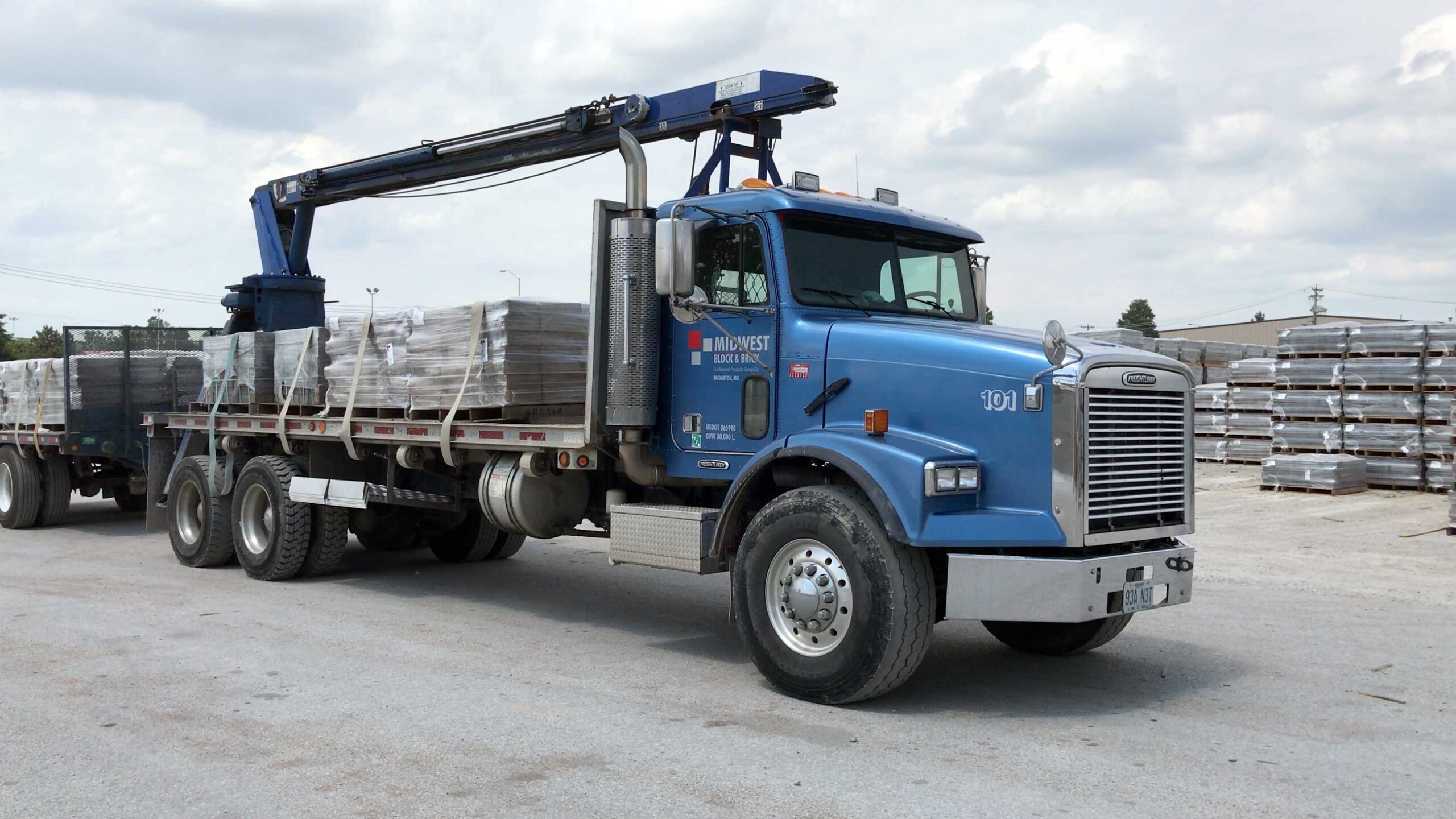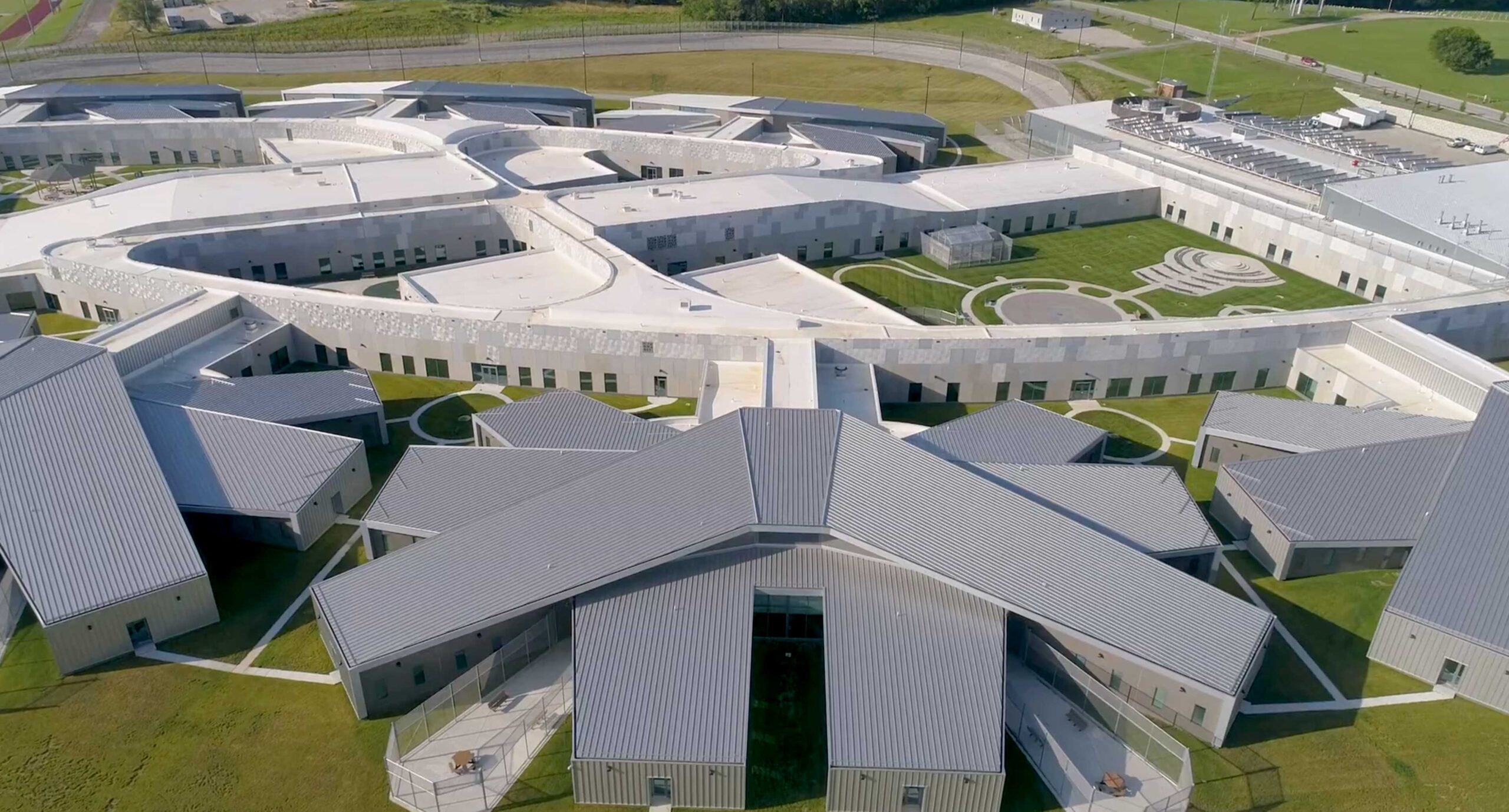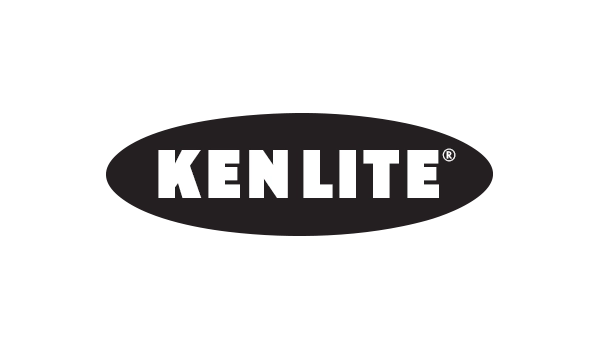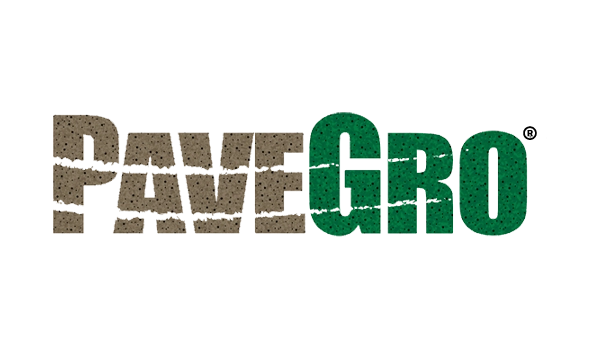Over 1-Million Lightweight Block in Missouri State Hospital
- Home
- Case Studies
- Lightweight CMU
- Over 1-Million Lightweight Block in Missouri State Hospital
Key Insights:
Quick Facts
-
Name: Fulton State Hospital Behavioral Healthcare Campus
-
Location: Central Missouri
-
Customer: Midwest Block and Brick
-
Client: Missouri Department of Mental Health
-
Size: Over 1.1 million concrete masonry units (CMUs) were used, and the total project cost was $211 million.
How Arcosa Helped
-
Our Solution: Arcosa supplied fine lightweight aggregate to Midwest Block and Brick for the production of over 1.1 million concrete masonry units (CMUs). The lightweight aggregate was shipped to Midwest’s production plants in Missouri for use in the construction of the Fulton State Hospital.
-
Why Lightweight Works: Lightweight aggregate reduces the weight of concrete masonry units, improving ease of handling, cutting, and installation. This not only increases mason productivity but also lowers transportation costs by allowing more blocks to be shipped per truckload. Additionally, lightweight CMUs provide a smoother, more uniform surface, resulting in a high-quality finish when painted.
Final Results
-
The lightweight CMUs allowed for faster construction, reduced labor costs, and improved mason efficiency. The use of lightweight blocks also reduced transportation costs by allowing more units per load. The $211 million Fulton State Hospital project was completed in three years, utilizing over 1.1 million lightweight CMUs.
Key Quote
Context:
-
Considerations: Concrete masonry units (CMUs) made with lightweight aggregate have become a popular choice for large-scale construction projects. These units offer advantages in terms of weight reduction, ease of installation, and energy efficiency, making them highly competitive against other wall systems like pre-cast concrete. The use of lightweight CMUs allows for faster construction timelines and cost savings, particularly on projects that require significant quantities of block.
-
Lesson to Learn: The use of lightweight aggregate not only improved the speed and cost-efficiency of the project but also demonstrated that CMUs can be an ideal alternative to pre-cast concrete. Lightweight blocks offer versatility in both design and construction, providing a high-quality finish while allowing for easier handling and faster installation.
Explore Further
Over 1-Million Lightweight Block in Missouri State Hospital
The product was shipped by barge to three of Midwest’s production facilities near St. Louis, Missouri. Bill Wolfe, Arcosa’s Marketing & Technical Manager, says the lightweight aggregate was ideal for the units produced for this large-scale project.
“Lightweight aggregate fines are manufactured specifically for the production of concrete masonry units,” Wolfe explains. “We grade the material to provide a consistent texture to the surface of the block, so that when it’s painted, it looks uniform across the face of the wall. You have far fewer pockmarks or indentations where there might otherwise be gaps in the grading of the aggregate.”
Masonry a Good Fit
When funds were allocated to replace the aging facility, designers initially considered constructing the secure structure with modular, pre-cast concrete sections. However, a coalition of concrete masonry experts worked together to demonstrate to the project’s architects how concrete block could improve several aspects of the updated complex.
“Quite honestly, masonry was just a really good fit for them,” says Mark Wilhelms, Vice President of Architectural Sales for Quikrete’s Midwest Block and Brick. “Their initial thought was to use pre-cast concrete, but as they developed their design, masonry proved to be a better solution. Everything came together with the contractors, suppliers, and the technical design team. We just clicked, and everything worked out really well early on in the project.”

Lower Costs, Better Productivity
Wilhelms notes that the use of lightweight aggregate also benefited the masonry producer. “Lightweight is a great product for us, especially in this case,” he says. “We shipped the product about 120 miles to the site, and we were able to load more block per truck, lowering delivery costs.”
Around 1.1 million units were used to construct the walls of the new state-of-the-art treatment center. “From a labor standpoint, lightweight blocks are just easier for masons to work with,” Wilhelms adds. “The units are lighter, and when they need to be modified, they’re easier to cut. They are just a more user-friendly product all the way around.”
Wolfe points to various mason productivity studies that have consistently proven the benefits of lightweight blocks to masons and project owners.
“Study after study has shown that the lighter the unit, the more units a mason can place in a given period. On a project of this scope, the number of days required to construct all the masonry walls is drastically reduced by using lightweight blocks.”
Wolfe also highlights that Midwest Block is one of the most innovative concrete masonry manufacturers in the country. “They’ve been proponents of lightweight block for a very long time,” Wolfe says. “They understand the value of lightweight block in the marketplace and how it helps keep concrete masonry competitive against other wall systems.”

After three years of construction and at a cost of $211 million, the updated Fulton State Hospital campus opened in the summer of 2019.












